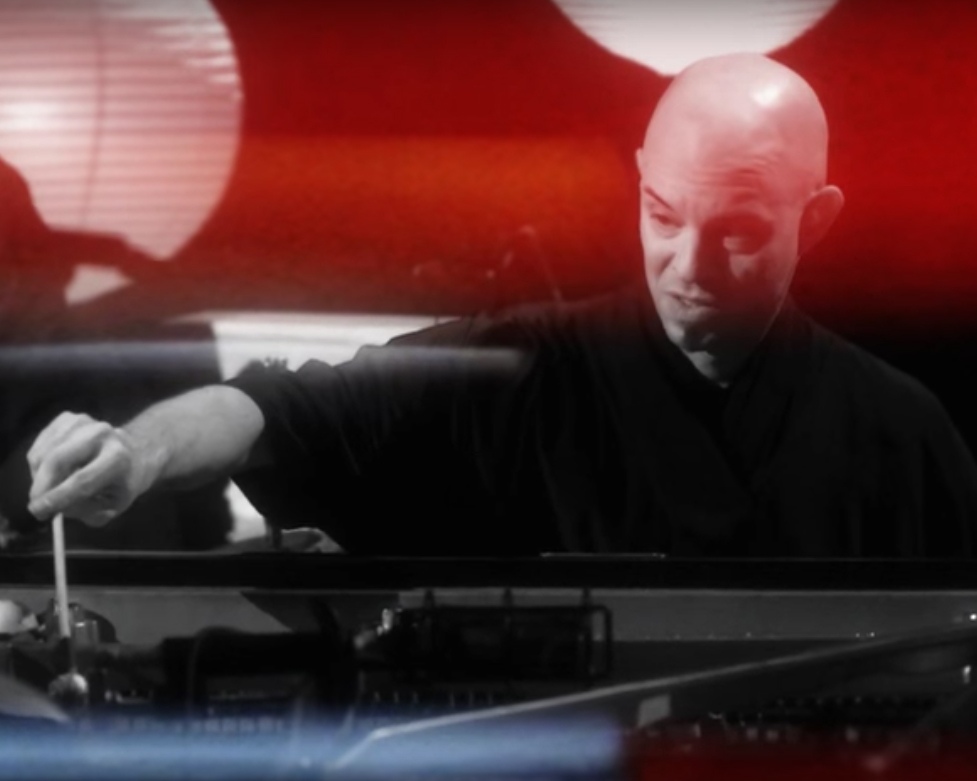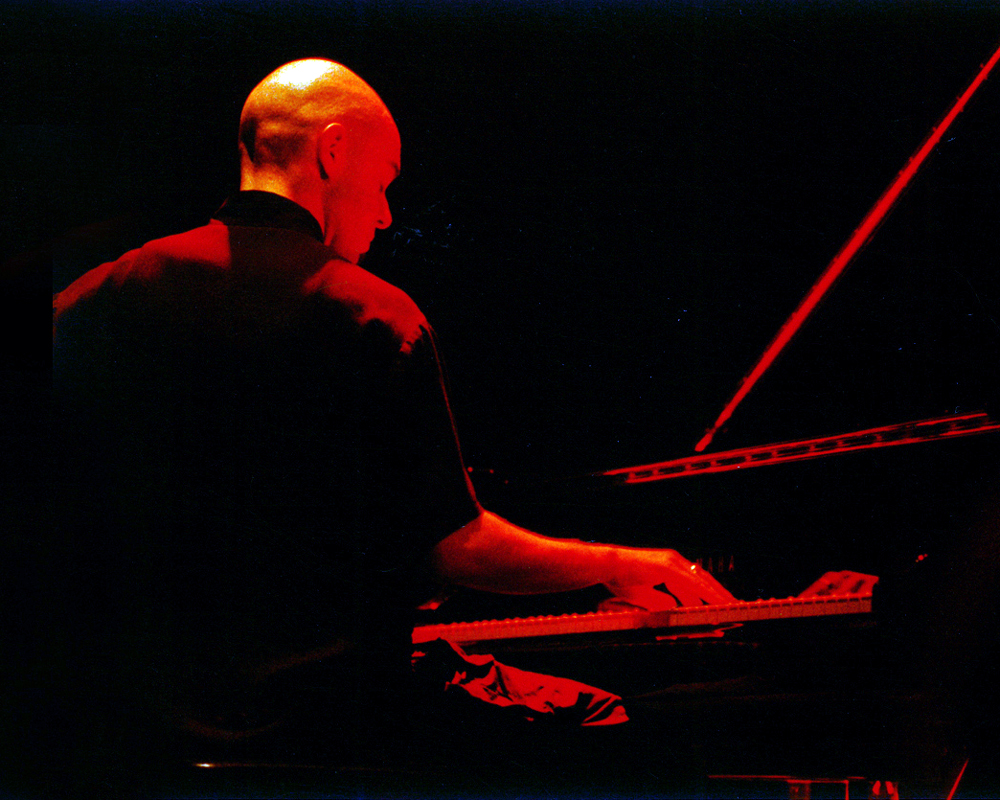When he was young, the Swiss pianist and composer Nik Bärtsch was obsessed with rhythm. Once, when his father brought him along to a party, he spent the whole evening drumming on an ashtray. Nowadays he is apt to reach inside his piano and tap at its innards, a boy still rattling away on whatever surface he comes across.
“A lot of groove music is dance music or is entertainment music, which is not good or bad, but it has certain consequences,” Bärtsch says. “I was always interested in groove music as an artform. Although I like the direct sensual energy of dance in it, I’m also interested in the deep meanings of groove music.”
On Jan. 5, Bärtsch will perform with his MOBILE ensemble at Killian Hall in Cambridge as part of MIT’s Sounding Series. The quartet plays what Bärtsch dubs “ritual groove music”–a nod to the music’s repetitive structure and funk-inflected rhythms.
The term is also designed to ward off less appealing descriptions. “It’s dangerous when you call it minimal jazz or something,” Bärtsch says. “It gives the total wrong impression.”
He has a point. Though Bärtsch’s compositions are deeply informed by jazz, MOBILE’s music sounds less like jazz’s offspring and more like its cousin–same gene pool, different family. Minimal music is part of the bloodline, but Bärtsch arguably owes more to funk’s propulsive swing. His music is at once cerebral and visceral, both instinctively felt and intensely meticulous.
Bärtsch’s arrangements are not vehicles for improvisation, jazz-adjacent though they are. Rather, his pieces are composed of precisely overlapping rhythmic parts, which click in and out of sync like gears on a clock, churning with the same calm relentlessness of passing time. One small alteration in a single part–the precise plink of a lone piano key, an extra tap on the high hat–changes the whole tenor of the piece.
Bärtsch says his music functions a lot like language. “You have a sentence with a few words, and you have a few strategies for how to combine them,” he explains. “You can start to really play with this. And then the meaning and the context change, and you get different poetic and rhythmic results.”
Bärtsch founded MOBILE nearly 20 years ago, in 1997, but it would be several years before the group actually made it onstage. When they finally did, in 2000, it was to perform a marathon 36-hour-long concert–the first in a series of three. The idea was to push the performers to their furthest limits, to open them up to the immense possibilities of rhythm and time.
“We really wanted to explore what happens when we are tired, but also what happens when we have so much time,” says Bärtsch. “And what happens between the musicians. Can we support each other, inspire each other and also really trust each other?”
MOBILE is best known for these longform performances, which Bärtsch calls “rituals.” They usually take place in vast, atmospheric settings: an old brewery, or a huge stage by a lake. The players gather in a circle, the better to commune with one another in the thrall of Bärtsch’s intensely rhythmic compositions. Even in the context of a more conventional 90-minute set, like the one the group will perform at MIT, MOBILE is a study in meditative groove.
When Bärtsch founded MOBILE, it was with the hope of fostering deeper musical connections with his collaborators. “In jazz, and sometimes even in classical modern music, there are a lot of opportunities, but the bands change very often,” he explains. “I was not happy with this whole culture.”
In a similar vein, Bärtsch established a regular Monday night residency to present his work. He says the concerts have occurred every single week for the last 13 years–no breaks for vacations or holidays. The shows feature various Bärtsch-led ensembles, including RONIN, a loose, electric counterpoint to the ultra-ambitious, all-acoustic MOBILE. (The two groups share some members.) These days the residency finds its home at Bärtsch’s Zürich venue, EXIL, which serves as a hub for experimental and genre-expanding music.
Rhythm, and a decades-long friendship, is what bonds Bärtsch to his primary collaborator, drummer Kaspar Rast. They first started playing together when Bärtsch was 10 and Rast was nine. Rast, a subtle yet insistent presence, forms the backbone of both MOBILE and RONIN. MOBILE is rounded out by percussionist Nicolas Stocker and the innovative reed player Sha on bass clarinet and alto sax.
The four possess an uncanny ability to lock into a groove, but Bärtsch says that finding it can be elusive. “You have to have a lot of trust, a lot of flow, a lot of calmness, but also a lot of presence and focus,” he says. “And groove–you cannot force it. It has to happen. And I like this paradox very much.”
Concert Details
January 5, 2017 / 8:00pm
MIT Killian Hall, 14W-111
160 Memorial Drive, Cambridge, MA
For tickets, register on Eventbrite



